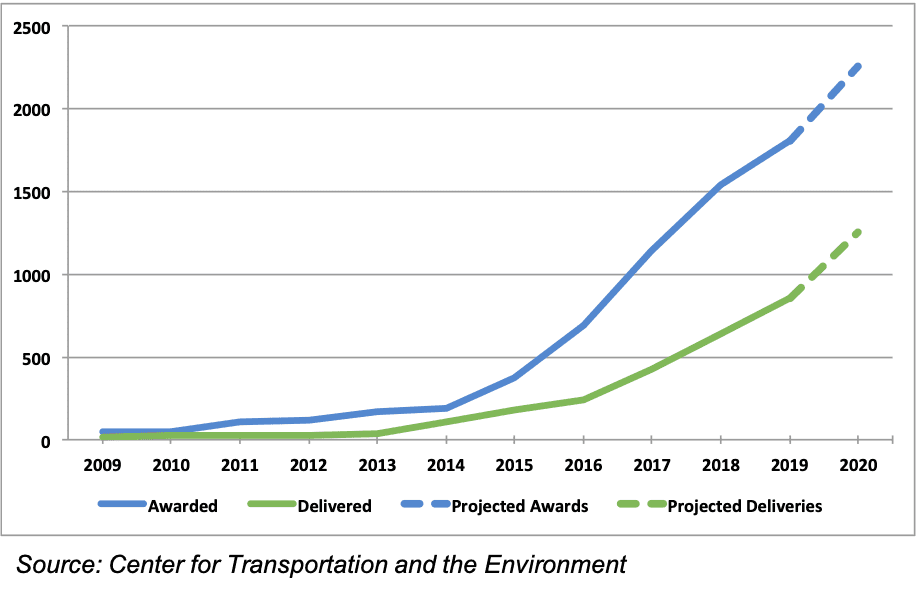ZEBS are the Future
The bus industry and the transit marketplace are together making great strides in increasing adoption of battery electric and fuel cell electric buses. According to the 2020 National Transit Database (NTD) published by the Federal Transit Administration, transit agencies reported having 1369 zero-emission vehicles (ZEVs) in transit revenue service. This includes battery-electric buses, hydrogen fuel cell, and electric trolley buses that operate on overhead catenary.
While state and federal governments are currently providing incentives through grants, pilot programs, and financial support to early adopters, the medium- and heavy-duty industries are eventually expected to move completely to zero-emission vehicles.


Fuel Cell Electric vs. Battery Electric
Fuel cell electric and battery electric buses are more similar than they are different. To begin, both are electric drive: both have battery packs, electric motors, charging ports, and share that distinctive “quiet ride” that operators and passengers enjoy. And of course, neither bus type emit toxins or greenhouse gases, such as tropospheric ozone or carbon dioxide.

Which Bus Fits My Needs?
The decision between a battery electric and a fuel cell electric bus depends on a number of factors.
Hydrogen fuel cell electric buses use an on-board fuel cell to generate electricity to charge high-voltage batteries to power onboard systems. The tailpipe emits only water. Fuel cell electric buses complement battery electric options with longer range and shorter fueling times. The fuel economy of fuel cell electric buses is less affected by extreme ambient temperatures than battery electric vehicles. Hydrogen fueling infrastructure, however, has higher upfront costs than charging infrastructure.
Battery electric buses are highly efficient and use a series of high-voltage batteries to power an electric motor and on-board accessories. Currently, battery electric buses have lower capital and operational costs than fuel cell electric buses, but have a shorter operating range, which can vary significantly based on duty cycle, driving style, and ambient temperatures.
ZEBRA advocates to adequately fund both battery electric and hydrogen fuel cell technologies, including infrastructure investments.
